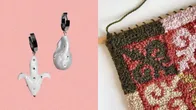On May 20, President Kassym-Jomart Tokayev signed a law permitting the export of pharmaceutical products made in Kazakhstan to World Trade Organization (WTO) countries under certain conditions, QazMonitor reports citing Akorda.
What it means: The law, titled "On Ratification of the Protocol to Amend the Agreement on Trade-Related Aspects of Intellectual Property Rights," provides a legal framework for WTO members to issue special compulsory licenses for producing and exporting affordable generic medicines to other member countries that are unable to produce the necessary medicines in sufficient quantities.
How it works:
A compulsory license is an authorization given by a government to use a patented invention without the consent of the patent owner.
Production under compulsory licenses is limited to the specific needs of the importing country. Re-export or sale of these medicinal products to third countries is prohibited.
As the exporting member, Kazakhstan must ensure that these pharmaceutical products are clearly identified through labeling or marking to distinguish them from products produced for domestic use.
The Protocol was initially approved by the WTO in Geneva on December 6, 2005, and came into effect on January 23, 2017. It has now been ratified by 111 of the 164 WTO member states.













